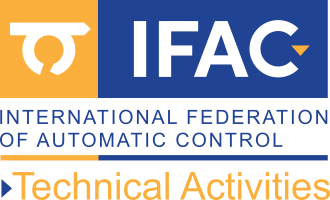TC Working Groups
The initiative to structure TC 2.2 in the form of working groups (WG) dates back to 2007 (TC Annual Meeting: 3rd IFAC Symposium on System Structure and Control, Foz do Iguassu, Brazil) with the creation of the first working group on Time-Delay Systems (TDS). The second entitled “Fractional Differentiation and Its Applications” covering the themes of fractional-order systems was created in 2010 (TC Annual Meeting: 4th IFAC SSSC, Ancona, Italy). Two other working groups were created in 2013 (TC Annual Meeting: joint IFAC SSSC/TDS, Grenoble, France): Symbolic computation methods for linear functional systems Group (SymCo) and Complex Systems Control Group (CoSy). Finally, the Linear Parameter-Varying Systems (LPVS) Group was created in 2018 (TC Annual Meeting: 14th IFAC TDS, Budapest, Hungary).
The role of the WG can be summarized as follows:
- to coordinate of the research activities in the corresponding fields (in link with TC 2.2 but not limited to);
- to create the appropriate dynamics at the interfaces with other communities interested by such topics (Applied Mathematics, Physics, Mechanics, Biology, Medicine, Computer Sciences Chemical Engineering,…) in order to create pluridisciplinary & interdisciplinary research with real benefit at both ends.
Starting with 2018, the TC 2.2 is structured in 5 Working Groups:
WG "Time delay systems" (TDS)
The focus of this WG is on all aspects concerning time-delay systems: modeling and identification, analysis, filtering and estimation, stability and stabilization, structural issues, robustness, approximation techniques and numerical issues, control schemes and application in process control, networked systems, communication, bioengineering, economics and other fields.
WG TDS is coordinated by:
- Wim MICHIELS (KU Leuven, Belgium): Wim/Michiels@kuleuven.be
- Gabor OROSZ (University of Michigan, Ann Harbor, USA): orosz@umich.edu
WG "Fractional differentiation and fractional order systems" (FDA)
The focus of this WG is on the analysis and the control of fractional-order systems: representation of fractional order systems, stability conditions for commensurate fractional order systems, simulation and sampling methods for fractional-order systems, observability and controllability conditions for commensurate fractional-order systems, system identification methods, fractional-PID, low-order controllers and robust control methodologies, vibration insulations, filtering. Some challenges are the following: find physical and the geometrical meanings of the fractional derivative operators, find stability, observability, controllability conditions for non-commensurate fractional order systems, build a consistent theory of fractional quantum mechanics, fractional quantum field theory, fractional differential geometry, develop analysis on time-delay fractional order systems, extend the existing results to nonlinear fractional order systems, extend LQR and LQG control to fractional order systems, apply in the industrial framework.
WG FDA is coordinated by:
- Pierre MELCHIOR (University of Bordeaux, France): pierre.melchior@ims-bordeaux.fr
- Duarte VALÉRIO (University of Lisboa, Portugal): duarte.valerio@tecnico.ulisboa.pt
WG "Control of Complex Systems" (COSY)
The focus of the working group is on the study of structural properties of systems which consist of the interconnection of a number of basic components (subsystems) and are characterized by complexity due to one or more of the following features: uncertainty or lack of knowledge about the dynamics of the single components; uncertainty or variability of the interconnection topology; hybrid and/or heterogeneous nature of the involved sub-processes; possibility to implement different functioning, information and/or decision making structures in response to goals and operational requirements; necessity to operate in variable and/or uncertain environments; large dimensionality. Examples of Complex Systems in the above sense are the so-called Structure Evolving Systems, the Switching Systems, the more general Systems of Systems. Applications are found in modeling and controlling natural processes in e.g. biology, genetics, social sciences as well as man-made processes in engineering design, networks and communications, power distribution, management.
WG COSY is coordinated by:
- Corentin BRIAT (Switzerland): corentin@briat.info
- Xiang CHEN (University of Windsor, Canada): xchen@uwindsor.ca
WG "Symbolic computation methods for linear functional systems" (SymCo)
Symbolic computation methods have been largely employed, in the recent past, by several groups of control theorists for studying structural properties and synthesis problems and computer algebra packages have recently been developed to study linear control functional systems. In this framework, the aim of the working group is to gather world specialists of symbolic computation and control theory experts to promote both the development of theoretical methods and their application to relevant engineering problems.
WG SymCo is coordinated by:
- Eva ZERZ (RTWH Aachen University, Germany): eva.zerz@math.rwth-aachen.de
- Alban QUADRAT (Inria Paris, France): alban.quadrat@inria.fr
WG "Linear parameter varying systems" (LPVS)
Linear Parameter Varying (LPV) systems are linear systems where the matrices depend on time-varying parameters. This class of systems allows representing several types of dynamical systems such as time-varying uncertain systems, non-linear systems, switching systems, multi-models, etc. LPV modeling allows also the design of LPV controllers, where the controller gains parameters are updated according to the measurable plant varying parameters. This working group aims at presenting new results in the field of LPV systems and their applications in real life problems, including modeling and Identification of LPV systems: In particular, how to obtain LPV models for nonlinear systems, switching systems, time-delay systems, sampled-data systems, systems with saturation, uncertain systems, polynomial systems, the analysis of LPV systems: stability and stabilization, robustness issues, geometric approaches, structural analysis, the observation and Diagnosis of LPV Systems: observer design, fault detection and isolation, the control of LPV systems: robust control, optimal control, predictive control, constrained control, fault tolerant control, virtual reference feedback tuning, sampled-data control, event and self-triggered control, as well as applications of LPV modeling and control automotive, aerospace, robotics, chemical processes, biological systems, energy and nuclear, network-controlled-systems.
WG LPVS is coordinated by:
- Roland TOTH (Eindhoven University of Technology, Netherlands): R.Toth@tue.nl
- Olivier SENAME (Grenoble INP, France): olivier.sename@grenoble-inp.fr

